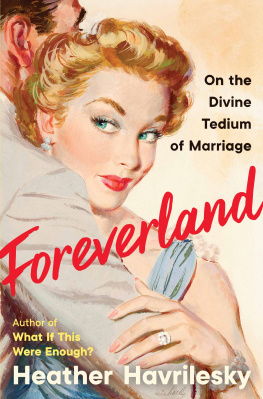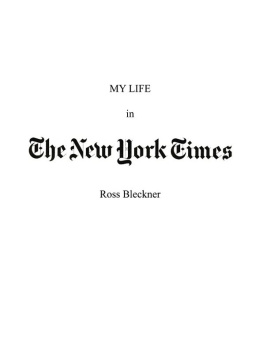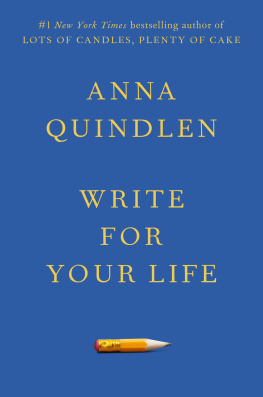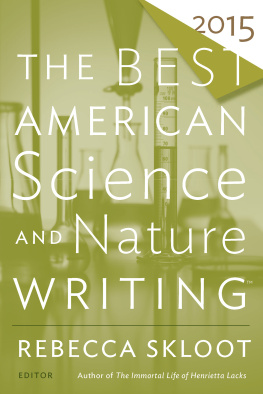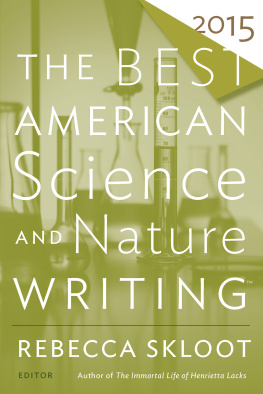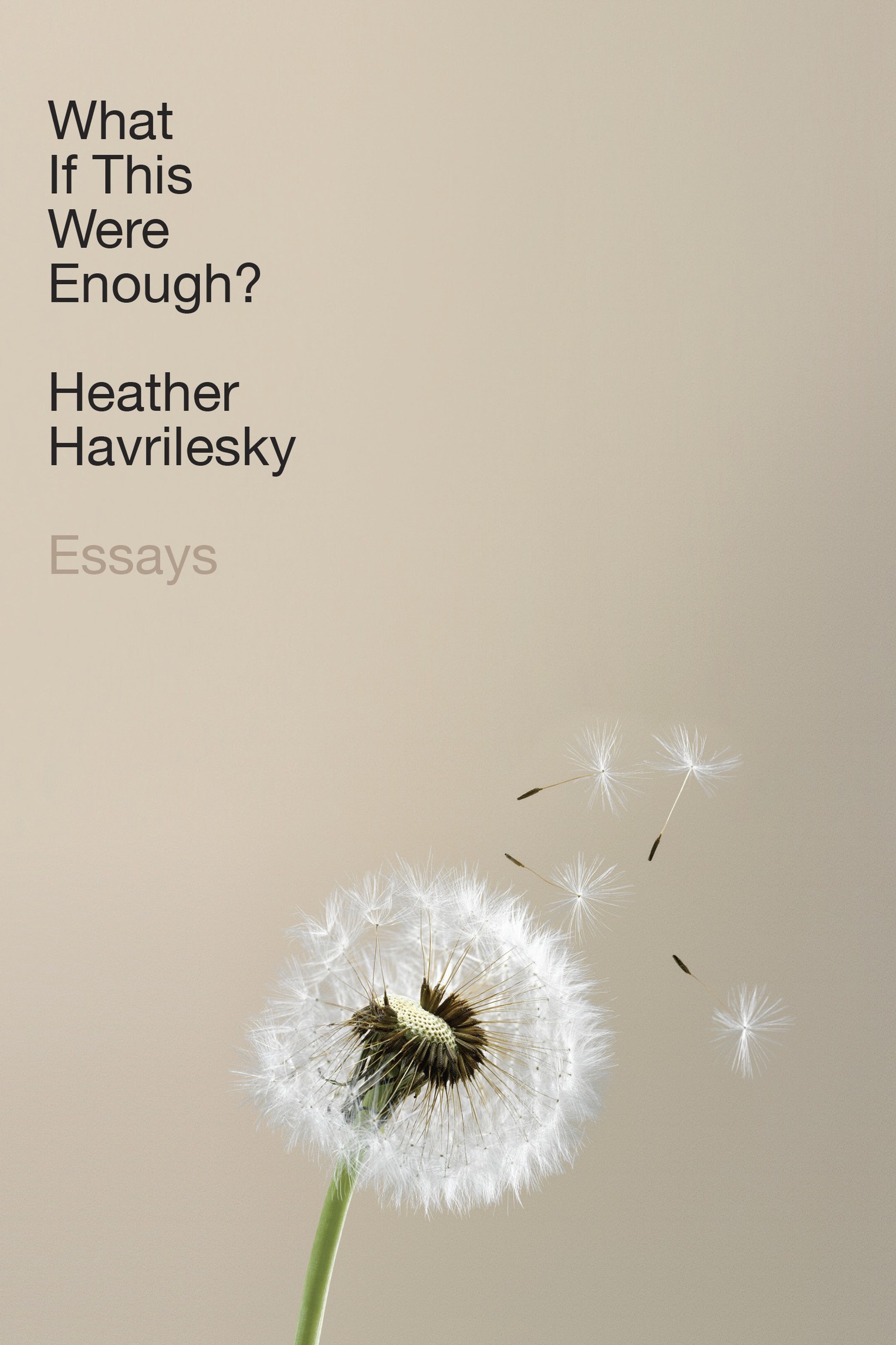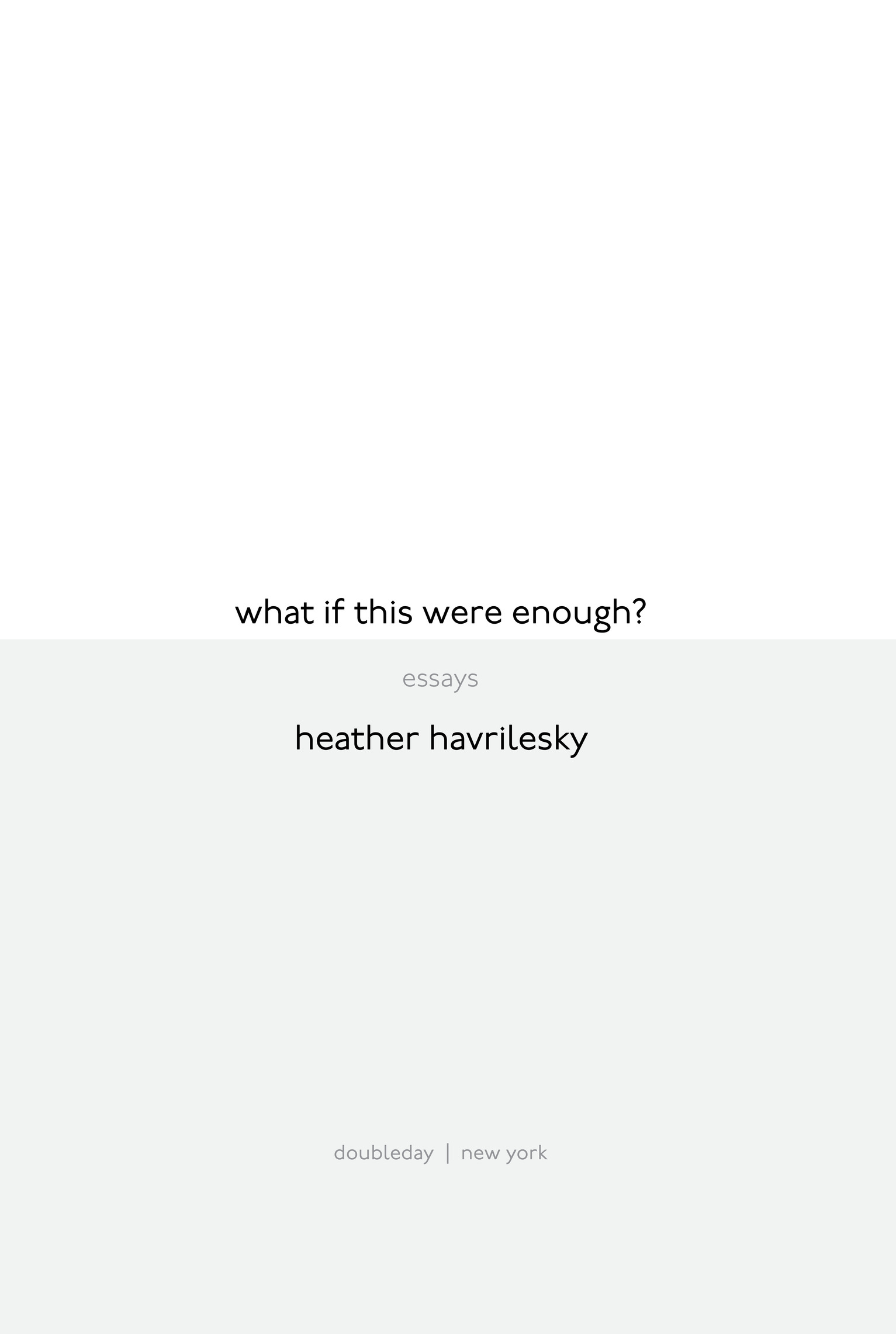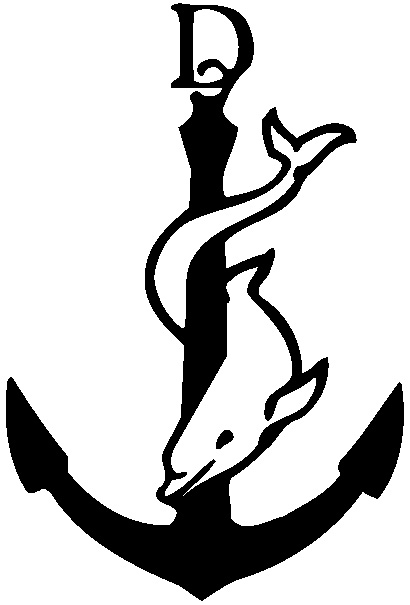Copyright 2018 by Heather Havrilesky
All rights reserved. Published in the United States by Doubleday, a division of Penguin Random House LLC, New York, and distributed in Canada by Random House of Canada, a division of Penguin Random House Canada Limited, Toronto.
www.doubleday.com
DOUBLEDAY and the portrayal of an anchor with a dolphin are registered trademarks of Penguin Random House LLC.
Several pieces first appeared, in significantly different form, in the following publications:
Aeon: Awaiting Renewal The Atlantic: Haunted Womanhood (10/16/16); The Sound of Bravado (7/29/16) The Baffler: Delusion at the Gastropub (6/2016); Fifty Shades of Late Capitalism (4/2013). The Cut: Its Never Been Harder to Be Young (7/14/16); Dont Call It Toxic Masculinity. Theyre Sociopathic Baby-Men (10/5/17); The Problem with Marie Kondos Second Book (1/8/16); What Romance Really Means After 10 Years of Marriage (2/9/16) Matter/Medium: Burning Down the Mouse (7/14/15) The New York Times: Billions Delivers a Dose of Charisma to Hedge Fund Titans The New York Times Magazine: 50 Shades of Mad Men (6/22/12); 794 Ways in Which BuzzFeed Reminds Us of Impending Death (7/3/14); How to Be a Pioneer Woman Without Ever Leaving the Couch (3/16/12); Magically Resistant to the Ego-Bloating Properties of Hollywood Life (7/22/11); Some Girls Are Better Than Others (4/12/12); TVs New Wave of Women: Smart, Strong, Borderline Insane (3/12/13); Why Are Americans So Fascinated with Extreme Fitness? (10/14/14) Salon: How Hoarding Shows Cured My Hoarding (4/10/10)
Cover photograph: Masterfile
Cover design by Emily Mahon
Library of Congress Cataloging-in-Publication Data
Names: Havrilesky, Heather, author.
Title: What if this were enough? : essays / by Heather Havrilesky.
Description: First edition. | New York : Doubleday, [2018]
Identifiers: LCCN 2018001398 | ISBN 9780385542883 (hardcover) | ISBN 9780385542890 (e-book)
Subjects: LCSH: Havrilesky, Heather. | Happiness. | Conduct of life. | WomenBiography. | LCGFT: Essays.
Classification: LCC BF575.H27 H388 2018 | DDC 152.4/2dc23 LC record available at https://lccn.loc.gov/2018001398
Ebook ISBN9780385542890
v5.3.2
ep
For my father
Contents
introduction
From the day we are born, the world tells us lies about who we are, how we should live, and what we should sacrifice to cross some imaginary finish line to success and happiness. More powerful than the outright lies were told, though, are the subtler, broader poisons of our culture, how we ingest and metabolize them until they feel like a part of us, yet we still cant figure out why were sick.
Some of these poisons lie in the most unexpected places: among our principles and values, in our private hopes and dreams, in our fears and anxieties about how we should be living and what we might never achieve, in our long-held notions of what we do and dont deserve and what we should and should not accept. Some of these poisons are embedded in the shared ideals of our culture, with its focus on constant improvement and perpetual forward motion. The rise of digital culture has exacerbated this problem dramatically. Were now, more than ever before, bombarded by hidden and overt messages about our personal worth. In spite of the growing uncertainty and anxiety of our current moment, we are meant to sidestep inconvenient emotions and fearlessly conquer the future. The slightest hesitation dooms us to the ranks of failures and losers. No wonder our capacity for nuance and subtlety has been lost, as our opinions and ideals increasingly take the shape of fundamentalist religions. Poetry and art, expansive intellectual discourse, the odd unfiltered momentthese are either misinterpreted as moral litmus tests or else theyre upstaged by bold claims and extremist rhetoric. The blustery overstatements and exaggerations and lies of talk show hosts, pundits, social media firebrands, and politicians drown out all attempts at refinement, restraint, and grace, and seep into our everyday interactions. Thoughtfulness is misread as uncertainty; melancholy is misunderstood as a stubborn refusal to play nicely with others. A century ago, survival was the main event. Longing was an accepted part of existence. Today, the inability to achieve happiness or fit in with the herd is treated as a kind of moral failure.
This book represents my attempt to investigate some of our most powerful cultural delusions and false dichotomies, to examine the inaccurate value judgments we make about mundane human behaviors, and to question the continued glorification of suffering, dishonesty, romantic fantasy, conquest, predation, perfectionism, denial, navet, and self-abnegation. Each essay in this book reflects an effort to examine the odd, contradictory messages weve slowly internalized without knowing it. Only by recognizing the absurdity of our guiding assumptions can we cultivate a more organic, enthusiastic, complex relationship to our lived experience.
Because the state of cultural confusion were experiencing is anything but trivial. Day in and day out, through aspirational products and heartfelt-seeming commercial messages, in the psychobabble of gurus and the motivational rhythms of Facebook testimonies, between the lines of pop songs and the dialogue of TV comedies, we are taught to communicate triumph while privately experiencing ourselves as inadequate and our lives as disappointing. Instead of recognizing these ingested messages as toxic, we learn to treat our humanity itself as poisonous, to treat our most human desires as a kind of sickness that can only be cured with outside help. Our self-respect, our pride, and our anger are encountered as personal failings, signs of how far off the path of empowerment and enlightenment weve strayed. Day by day, minute by minute, we are robbed of the present.
Which is an odd state of affairs, considering that were living in a time of unprecedented comfort, leisure, and wealthalbeit one to which only a segment of the population has full access. But few of us are spared the peculiar pressures and anxiety of our current moment. Through the devices in our pockets, we are reminded of our limitless freedom, limitless opportunities, limitless ways to indulge our interests. And yet, our lives feel more difficult to navigate than ever.
Many of the hurdles we face are not concrete and are therefore difficult to address directly. We interact in a world curated mostly by commercial forces. We are pulled into a strange, manic, overcrowded realm of technology that taxes our focus. What should I be doing right now? is a question that feels more urgent than ever. Face-to-face, real-time connection to others feels fraught and awkward compared to the safe distance of digital communication. We maintain intimate virtual contact with strangers but seem increasingly isolated from our closest friends and family members.
Our culture exerts a constant pressure on us that severs our relationship to ourselves and each other. This book explores discrete examples of the sources of this severing, along with sweeping views of the larger landscape against which these changes play out. But I also hope to express how it feels to be inside of the problem, to feel these cultural poisons sinking into your skin without always knowing how to keep them outor even knowing which side effects are attributable to outside forces and which are manifestations of your biochemical quirks, your lopsided personality, your fractured emotional development.


